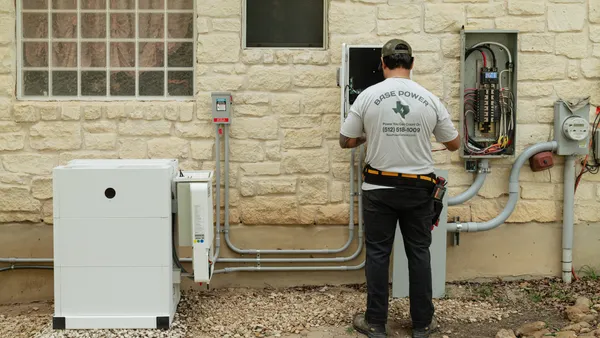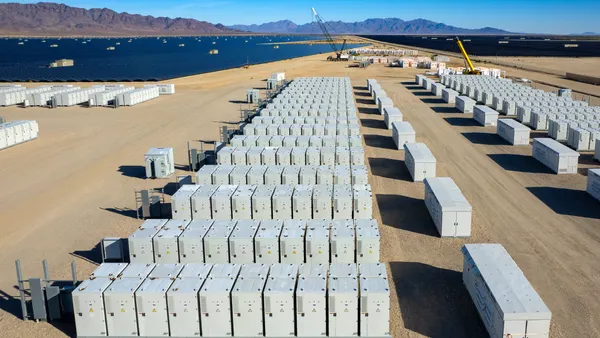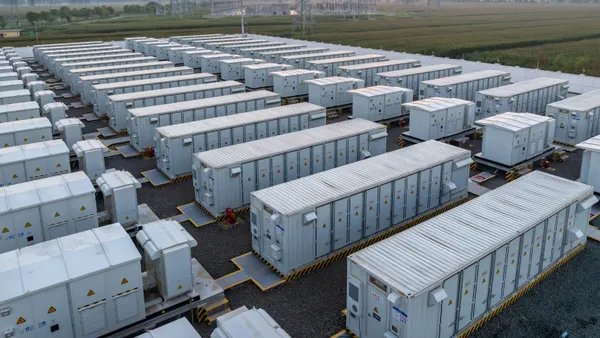Dive Brief:
-
Sen. Martin Heinrich (D-NM) plans to introduce an investment tax credit (ITC) for energy storage next week, according to Greentech Media.
-
The credit would be based on the existing tax credit for solar power that was extended through 2022 in legislation passed at year end.
-
Heinrich’s bill would gives businesses and homes a 30% tax credit, but the credit would taper off starting in 2020.
Dive Insight:
Tax credits have been a boon to both wind and solar power by providing financing strategies that have spurred their growth. If legislation being pushed in the Senate by Martin Heinrich is passed, storage could receive its own tax credit.
Some storage applications can qualify for a credit under existing ITC standards, but qualifications have been decided on a case-by-case basis and are complicated by considerations having to do with dual-use properties, that is, devices that can act as both load and supply.
The White House, meanwhile, is backing energy storage and microgrids.
Speaking at a White House summit on emerging grid technologies, Heinrich said, "Our grid is beginning to behave very differently. Customers are becoming generators and new technologies have made transmission a two-way street," according to Politico.
Heinrich’s bill would cover commercial storage systems using batteries, flywheels, pumped hydro, thermal energy and compressed air as long as they can provide a minimum of 5 kWh of storage.
On the residential side, the credit would only apply to battery storage with a minimum capacity of 3 kWh.
Rep. Mike Honda (D-CA) introduced similar legislation in the House in May. Honda was also part of a bilateral Congressional caucus backing energy storage. Last year, Heinrich and Sen. Angus King (I-ME) introduced a national mandate for energy storage based on the California model, but it fizzled out.













